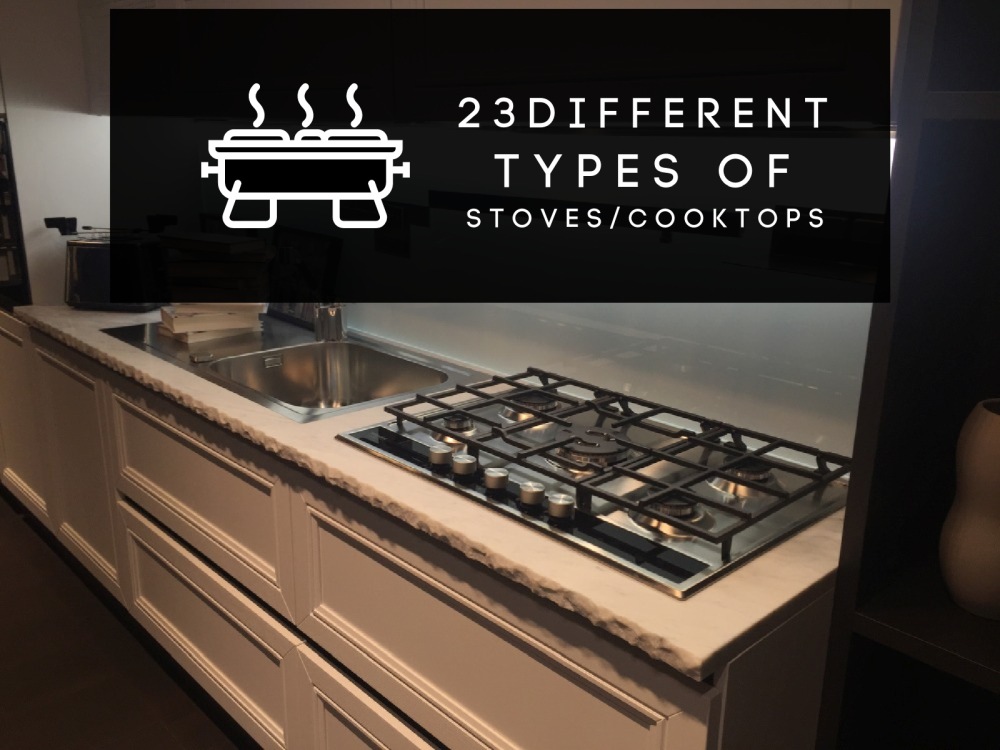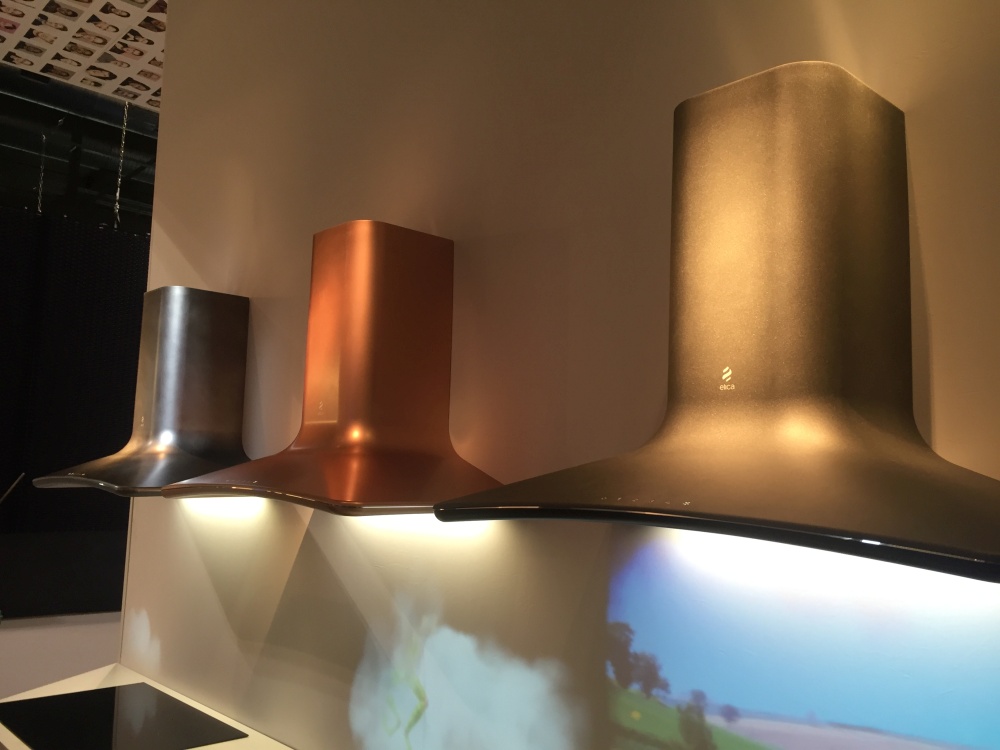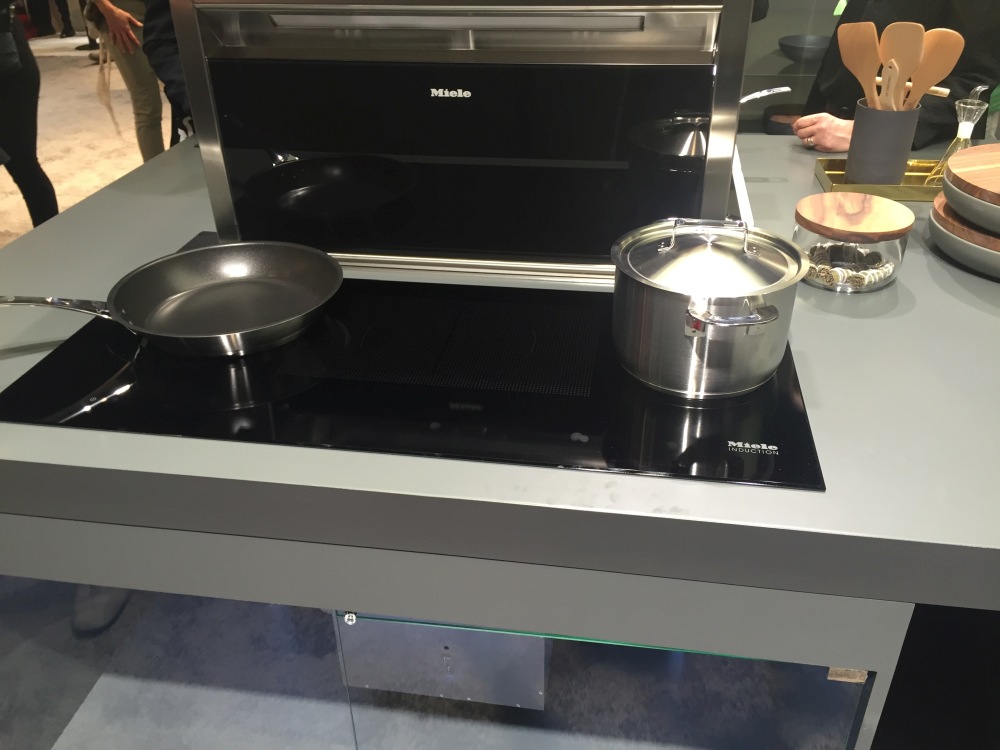Types of stoves vary and getting the right one depends on what kind of home cook you are. Before picking one, you need to learn about the many different types of stoves and all the new technologies and features they offer.

Traditionalists love four-burner gas stoves and trendy homeowners might want a griddle stovetop and digital touch controls. Once you decide what your priority list is, you can choose the most energy-efficient stovetop for your home.
How to Choose the Best Stovetop
One of the most important kitchen appliances you have to choose when renovating your kitchen is the type of stove. You’ll need to decide if you have the right structure to install an overhead vent, if your house has a gas line installed to power a natural gas stove or if you need an electric stove. Consider the pros and cons of how each cooker works.
Gas
Gas stoves are for traditionalists who are loyal fans. One reason is that gas stoves have an open flame and provide instant heat that is transferred directory to the pot. It’s also one of the more budget-conscious, efficient stove options when compared to an electric stove or more advanced heating technologies.
Gas stoves run on propane in rural areas or natural gas for fuel and users increase and control the level of heat. These types of stoves have powerful flames.
Some downsides of using a gas stove include the tedious task of cleaning them and the smell of the fuel.
Electric 
Although electric stoves don’t allow you to control the exact amount of heat being emitted, they do keep your kitchen cooler. Many homeowners who like spending their days concocting new recipes may like this power source.
Electric stoves also provide more consistent heat. If you’re making queso or melting chocolate, you’ll have no worries about burning any food while the stove runs on a low heat setting. Some common disadvantages of electric coil cooktops include the cost and delicacy of heating elements.
These stoves also cost more than gas stoves. Moreover, since they have an electric heating element, any electricity outages in your area will affect your ability to use the stove.
Induction
Induction stoves use magnetic currents to produce heat under the cooking surface. These types of stoves are easy to clean, have fast heating, and are simple to control. These advantages give induction stoves a leg up compared to a gas stove or electric stove.
Also, an induction cooktop allows you to cook faster with consistency. The heat on the stovetop adjusts to the size of your pot or pan for the perfect cooking area. This is efficient, letting your food cook in half the time of regular gas or electric stoves.
How to Care For Your Stovetop
The best way to care for the surface of your stovetop depends on the type of stove you have.
If you are choosing an electric coil cooktop, you’ll need to learn how to dismantle the parts, including the heating element, to clean every part of the stove surface. Some people consider this one of the cons of electric stovetops.
If you have a smooth stovetop, cleaning is much easier. You will have more flexibility with the cleaners you use since the stovetop is flat and there isn’t anything to disassemble
Different Stovetop Surfaces
Coil
Types of stoves with coil elements are cheaper than others in general. However, you can compare prices to see which type of stove gives you the best deal. Electric coil cooktops come in a spiral pattern and produce heat through an electrical wire.
When an electric coil cooktop heats up, it glows orange. You can control the temperature with the appropriate stove knob, which is great for simmering food. The drip pans are rather cheap to remove and replace if needed. This is something to consider if you cook a lot because it can be harder to clean all of the grime and food off this stove.
Smooth
Smooth stovetops use coils to heat the electric burners, but the coils and electricity are located beneath the black cooking surface. They can be pricey to replace if the glass or ceramic top cracks.
Moreover, smooth stovetops may look like sleek modern decor, but they have some cons. One is that they take longer for your pans to heat up and cook food because the coils aren’t in direct contact.
The greatest advantages of using a smooth stovetop surface are ease of cleaning and the ability for them to cool down faster. Radiant cooktops easy to clean without spilled food falling inside the coils.
Copper
Copper burners provide a beautiful look for gas stoves. These add to the design of gas cooktops and diffuse the open flame heat so that your food can hold a steady temperature.
These features make copper burners efficient for cooking purposes. Copper transfers heat quicker than other metals, so you’ll want to keep an eye on your dish when you cook food.
Stove Feature Options
Downdraft Cooktop
A downdraft extractor is a sleek, modern alternative to using a traditional hood for your stove.
The extractor pulls in the steam and smoke that rises from your cooking and takes it out of your kitchen. The coolest thing about having a downdraft cooktop exhaust system is that it can hide in a slot behind your stovetop when not in use.
Some of the cons of downdraft cooktops are that they are pricey and have a small vent. But, they have pros in that they are energy efficient and give you a huge bang for your buck!
These types of vents often go with electric stoves or induction types of stoves making downdraft cooktops good for cooking in small kitchens.
Overhead Hood
Pricing can vary for traditional overhead hoods. You’ll find budget-conscious options for a ventilation system in addition to luxury choices. An overhead hood protects you, your family, and guests from dangerous fumes or excessive smoke created by the stove.
The exhaust fan pulls the smoky air into the range hood and the metal grease filters catch any particles. The hood then filters the air outside or converts it into clean air and returns it back into the kitchen. Overhead hoods often include lighting, which is efficient and an added benefit to a ventilation system.
LED Display
LED displays offer numerous special features and a sleek black look. You can set a timer for when you are cooking or bake to make sure your dishes don’t burn. You can also keep an eye on the time.
Depending on the types of stove options available, you can also set the appropriate temperature for your oven and broiler if needed.
These products are very common with induction cooktops.
Speed Heat
If you purchase a stove with a speed heat element, you’ll be the hero of dinnertime! Speed heat revs up the cooking process in case you need to heat anything incredibly fast.
The knobs on the stovetop allow for an easy transition between low and high heat temperatures without missing a beat. Dinner will be ready in no time!
Safety
Safety features add costs to your stovetop but are something to consider when shopping among various types of stoves.
These features are designed for those who have small children or who are multi-taskers that forget to pay attention. Choose the kind of electric cooktops with child locks or automatic shut-off safety features to ensure a safer stove and home for you and your family.
Portable
Portable stovetops can come in handy if you are catering events like weddings, community events, or even cooking food in a shoebox-sized apartment. The portable stovetop is smaller, lighter weight and easier to pack than other types.
These stove types give you the option of having a hot meal versus microwaved leftovers. For safety reasons, it’s best to go with a portable electric cooktop that can regulate temperatures and has an automatic shut-off.
Stovetop Griddles
Griddles are kitchen stove saviors. Created for gas stoves, a griddle cooking surface still has the same benefits as electric stoves do.
A stovetop griddle can be used as a convenient spot to let dishes cool if all of your burners are in use. Use it to cook pancakes or omelets. You can also use this section of the kitchen stove for cooking food in pots or pans on low heat.
Wifi
Our lives are becoming more synced to technology and kitchen appliances like a stove are no exception.
One of the latest, great new tech options includes adding wifi features for your stove. If you are used to an LED display with manual buttons, you should consider purchasing a stove type with wifi so you can get rid of any manual tasks. Stovetop brands now have apps you can use to communicate through wifi instead of using your hands to turn knobs.
Continuous Grates
Continuous grates make it easy to maneuver across a larger stovetop without heavy lifting. Gas stoves have these and the main purpose is to lift cookware above the flame. It also allows you to move heavy cookware from one burner to another across the stove.
These grates provide more space since pots and pans can sit partway off the flame without the risk of falling off the stovetop.
Automatic Reignition
One of the pros of a gas stove is the automatic reignition feature. This is an extra precaution for stovetops that lowers the chances of having gas leaks.
This great feature keeps the stove safe in case the knob is turned past the initial ignition position without the burner’s flame having ignited. There could be a gas leak at this point and the automatic reignition corrects this misstep with the fuel.
Knobs
Stovetop knobs can give warnings to ensure safe cooking on your stovetop as well as provide useful information for temperatures.
If you have busy toddlers running around, you’ll want to install smart knobs on your stove. You can control smart knobs using your phone and bluetooth or wifi, which helps with safety,
There are also many types of covers you can order for your knobs to keep them safe, depending on your needs.
Digital Touch Controls
For a sleek kitchen design, no-knob digital touch controls are ideal. The digital controls are along the edge of the induction cooktop or other smooth cooktop and light up in LED when in operation. This can be hazardous if you have little ones in the kitchen, so this stovetop type might be more for empty-nesters or childless homeowners.
The no-knob feature creates a more seamless result for the contemporary kitchen.
Burner Count Options
Two Burners
The two-burner stove types are a great choice for cooks who like to go camping or have an impromptu date night outdoors. These smaller types of stoves use propane fuel tanks and exposed burners, so they are made for the outdoors.
Choose to have a standing double-burner stove or a tabletop stove option based on your needs.
Three Burners
Choose a triple burner stove if you have an older home with limited kitchen space. With three, you’ll be able to use different-sized burner plates for cooking stew, vegetables, or rice at the same time.
Propane-powered stove types are designed for the outdoors.
Four Burners
The most common residential model is the quad-burner stove. Most homes have those with four because this size is convenient for cooking. These different types of options are familiar and easy to use.
Five Burners
For those who enjoy diving deep into their recipe adventures or who want to pretend they are professional chefs, the five-burner setup is perfect. The pros include that you get the same familiarity as cooking on the four-burner system, but with an added bonus.
With these stove types, make sure you don’t leave any kitchen towels or other flammable things in the center of your stovetop when you’re working.
Six Burners
Six burners are a great option for people who are serious home cooks, bakers, and food gurus. The large six-burner setup allows you to work on several dishes at once.
If you’re someone who loves to make a five-course meal, this type of heavy stovetop is bigger and will help move along the cooking process. For large meals, the continuous grate is recommended for this stovetop.
Frequently Asked Questions (FAQ)FAQ
How many different types of stoves are there?
In general, there are three different types based on the kind of energy: Gas stoves, electric stoves and induction cooktops. In general, the choice comes down to personal preference and cooking style.
What kinds of electric stoves are there?
Electric cooktops come in two different styles, which are coil cooktops and smooth top cooktops. In the coil style, the heating elements sit in a burner pan on the stovetop. Smooth cooktops have heating elements under a smooth ceramic surface or porcelain surface, which is easier to clean.
What type of stove is most popular?
The most common type of cooktop to install is electric. Gas is the next most popular of the types. Induction cooktops are energy efficient in the long run but cost more up front.
How long do electric stoves last?
In general, most people need to replace an electric cooktop after about 13 years, according to the National Association of Home Builders.
What is the average life of a gas stove?
Gas cooktops tend to last a few years longer than electric ones. The general lifespan of this type of stove is a good 13 to 15 years.
How do you know when to replace stove top?
There are several signs that you might need a new stovetop. First, if a failed burner don’t heat up the right way, it might need to be replaced. If you smell gas, the stovetop doesn’t turn on or the control panel doesn’t work, it’s probably time to go shopping. Also, if there’s a crack in the smooth surface of the stove, you should replace it.
Types of Stoves: Conclusion
When you begin shopping for options to choose different types of stoves, keep in mind the safety of your family, your kitchen’s design, and the most affordable type of energy for powering your new stove.
Choose the added features that will make using your new stovetop to cook foods a joy. Have fun with the process of shopping for your new kitchen appliance.
The post Types of Stoves for Every Home Cooking Situation and Style appeared first on Home Decorating Trends - Homedit.






















0 Commentaires